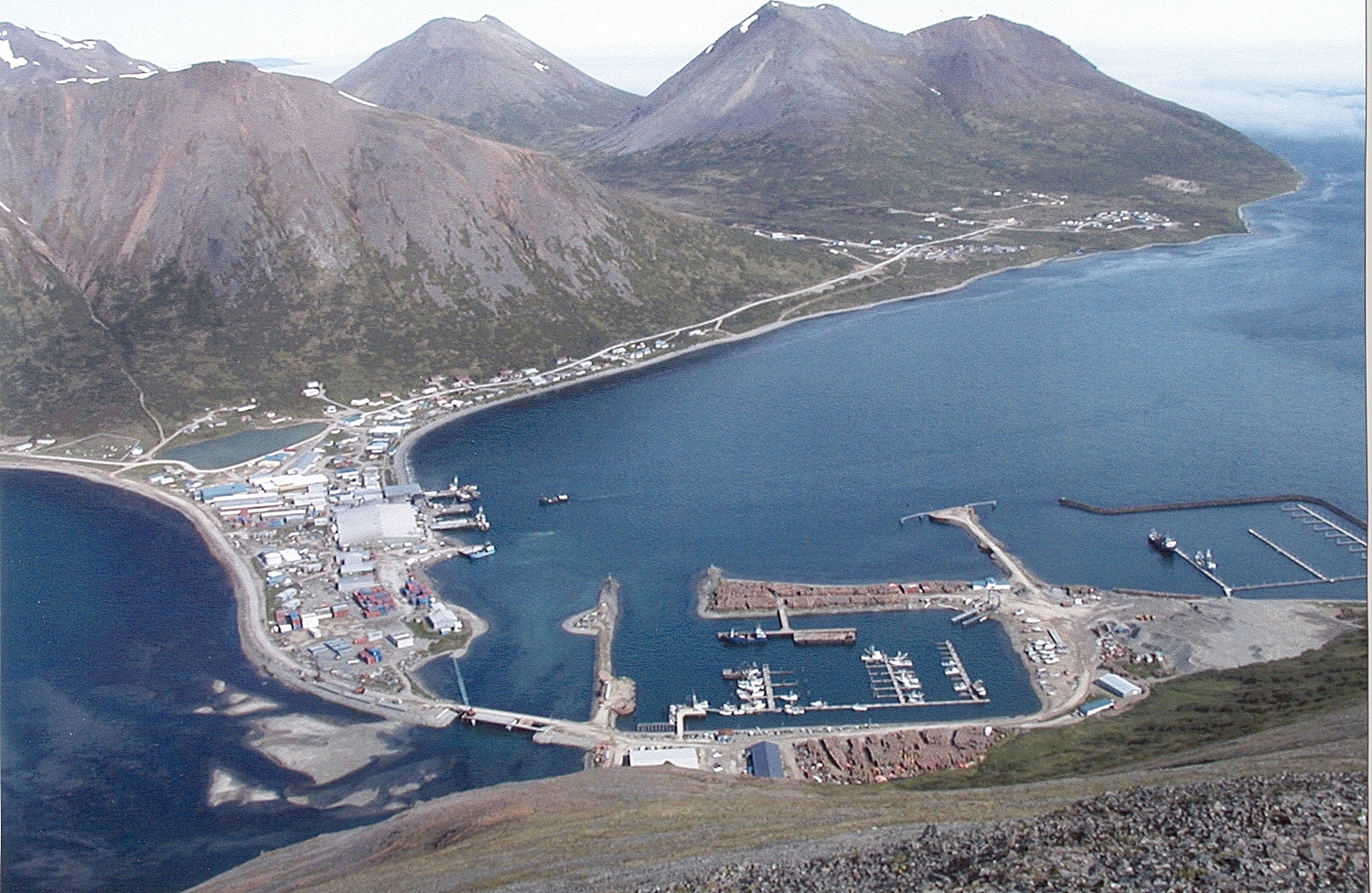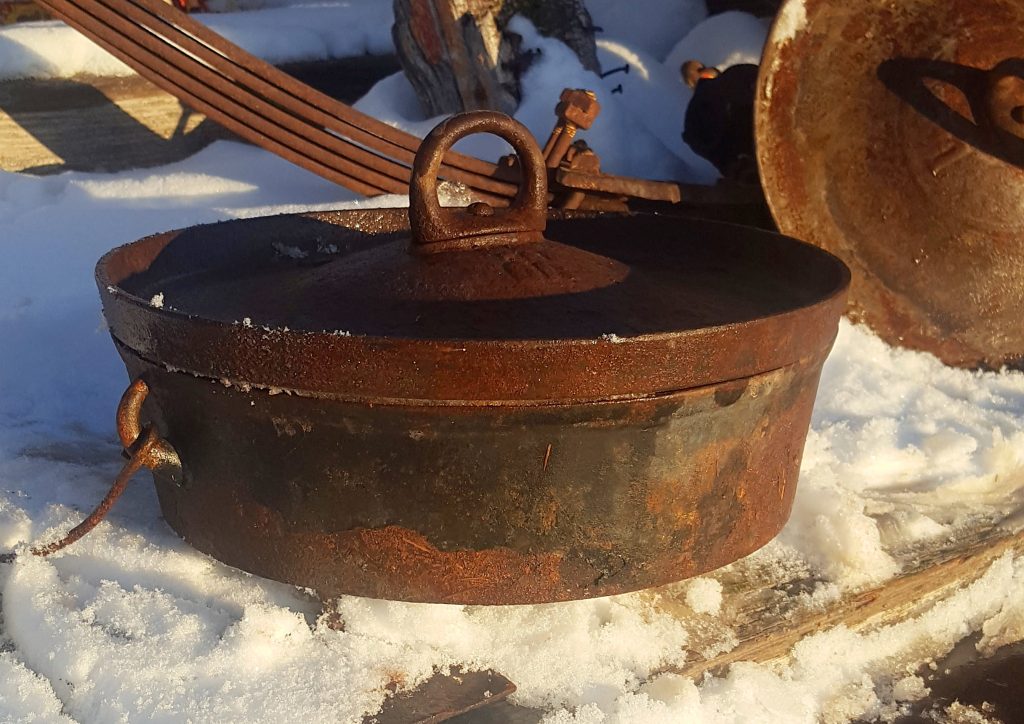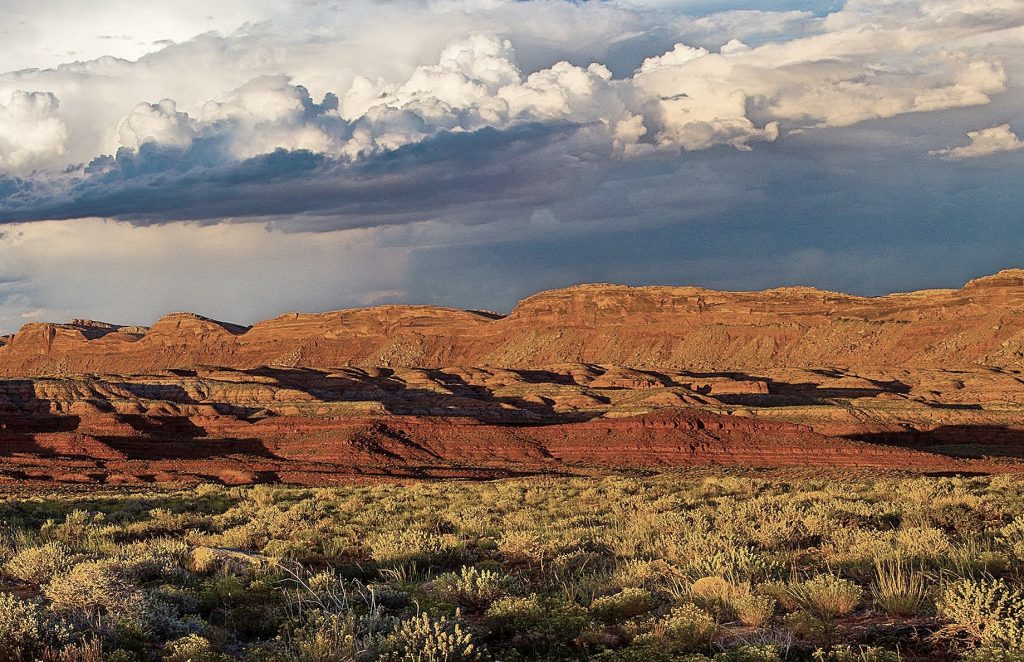“Harsh weather conditions routinely ground planes and prohibit sea travel, isolating the residents of King Cove during medical emergencies. At least 19 deaths have been attributed to the lack of a safe and reliable transportation route to access emergency services.”
posted by editor
A federal land swap with the state of Alaska was approved on January 22 by Interior Secretary Ryan Zinke. Though relatively small in size, the land transfer from the U.S. Fish and Wildlife Service to the State of Alaska, will have immeasurable benefits to the residents of King Cove, a remote town nestled between two volcanoes in the Aleutians.
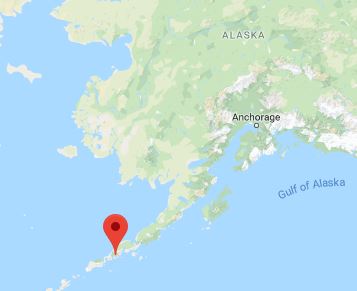
The transfer of federal land was made official six months after the House passed H.R. 218. According to a July 2017 press release from the House Committee on Natural Resources:
H.R. 218 authorizes a land exchange between the U.S. Fish and Wildlife Service and the State of Alaska to construct an 11-mile, one lane, non-commercial road connecting the remote community of King Cove to a modern, all-weather airport with access to emergency medical services in Cold Bay, Alaska.
Harsh weather conditions routinely ground planes and prohibit sea travel, isolating the residents of King Cove during medical emergencies. At least 19 deaths have been attributed to the lack of a safe and reliable transportation route to access emergency services.
In apparent disregard for the high death rate resulting from the sheer remoteness of King Cove, which is primarily populated by native Alaskans, the Obama Administration rebuffed Congressional efforts to gain approval for the land deal to build the life-saving road. Obama’s Interior Department sided with environmentalist groups who opposed the proposed road because it would cut through the Izembek National Wildlife Refuge, despite the fact that there are already several roads in the refuge which have had no impact on wildlife or bird populations.
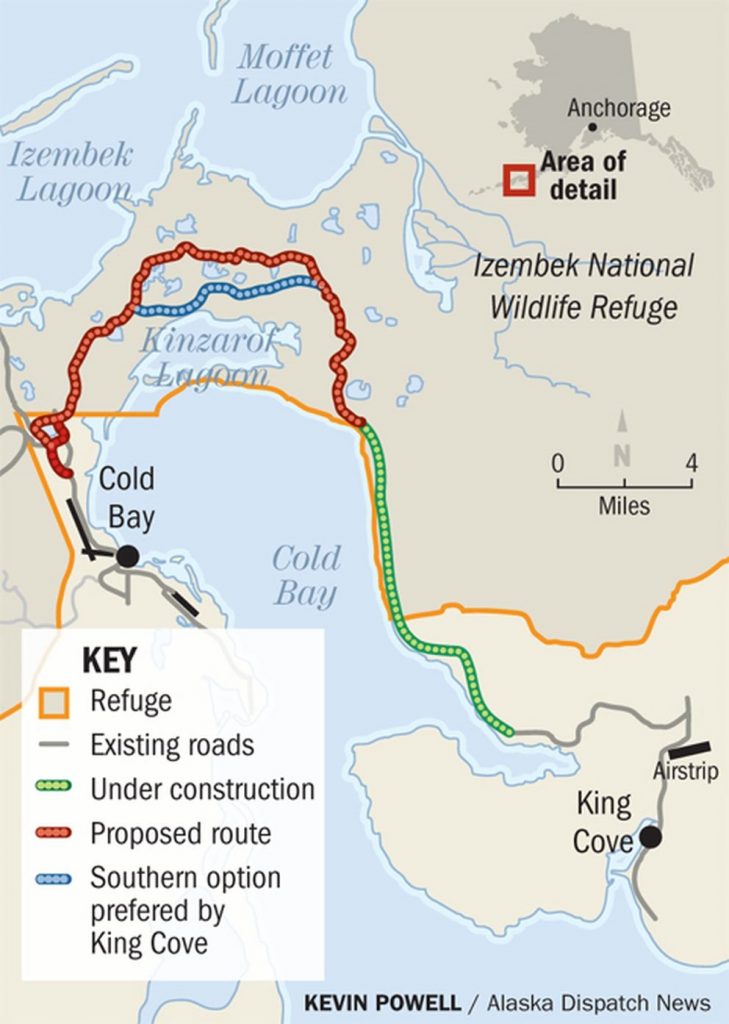
In the Natural Resources Committee July press release, Alaska Representative, Don Young, decried Obama’s refusal to approve the land swap, saying:
“That decision, which placed the interests of environmentalists and wildlife over human life, was one of the worst government actions I’ve seen in all my years. I thank all those, including Chairman Bishop, for standing by the people of King Cove in support of this commonsense legislation. Without question, it will save lives. The people of King Cove have fought for over 30 years for safe and reliable access to emergency care and it’s past time we make it a reality. Frankly, I will not rest until we do.”
Approval of the road project was of utmost important to Alaskans, but their hopes had been frustrated for decades by political obstructions. Shortly after his confirmation, Secretary Zinke signaled to Alaska’s leaders that things had changed in Washington D.C. In April 2017, Anchorage Daily News reported:
Residents of King Cove want to build an 11-mile road through the Izembek National Wildlife Refuge to the huge, World War II-era airport in Cold Bay. They say they’ve exhausted other options: Lives are at risk — rough weather that prevents flying out of King Cove means costly and time-sensitive air extractions are required for sick and hurt residents. And they say that the people of King Cove, especially Natives, should have the right to cross the land.
Most recently, the Obama administration said no to a road through the refuge. Then-Interior Secretary Sally Jewell cited concerns about the environmentally sensitive area and the birds that migrate to the refuge, situated in the remote patch of earth where the North Pacific Ocean meets the Bering Sea.
But President Donald Trump’s interior secretary, Ryan Zinke, is inclined to consider a new approach.
And, according to an article in the Washington Post, President Trump took a personal interest in the welfare of King Cove, and engaged Alaska Governor, Bill Walker, in a serious conversation about the road project. On January 22, Secretary Zinke made good on the President’s desire to prioritize human life over the complaints of environmentalist special interest groups.
In response to the positive turn of events, the office of Congressman Young issued a press release in which Della Trumble, a member of the local Agdaagux tribe, and community spokesperson, offered high praise for the decision, stating, in part:
“The land exchange agreement with the Interior Department represents a major milestone in our decades-long fight to protect our families and secure our access to safe, reliable transportation options in an emergency. This is truly a matter of life and death to us and we are extremely grateful to Sen. Murkowski and the entire delegation for standing with us for all these years…”
Finally, drawing a sharp contrast between his priorities and those of his predecessors, Secretary Zinke issued the following statement:
“Above all, the federal government’s job is to keep our people safe and respect our treaty commitments with Native Americans and Alaska Natives, today I am proudly fulfilling both of those missions. Previous administrations prioritized birds over human lives, and that’s just wrong. The people of King Cove have been stewarding the land and wildlife for thousands of years and I am confident that working together we will be able to continue responsible stewardship while also saving precious lives.”
Free Range Report
Thank you for reading our latest report, but before you go…
Our loyalty is to the truth and to YOU, our readers!
We respect your reading experience, and have refrained from putting up a paywall and obnoxious advertisements, which means that we get by on small donations from people like you. We’re not asking for much, but any amount that you can give goes a long way to securing a better future for the people who make America great.
[paypal_donation_button]
For as little as $1 you can support Free Range Report, and it takes only a moment.
